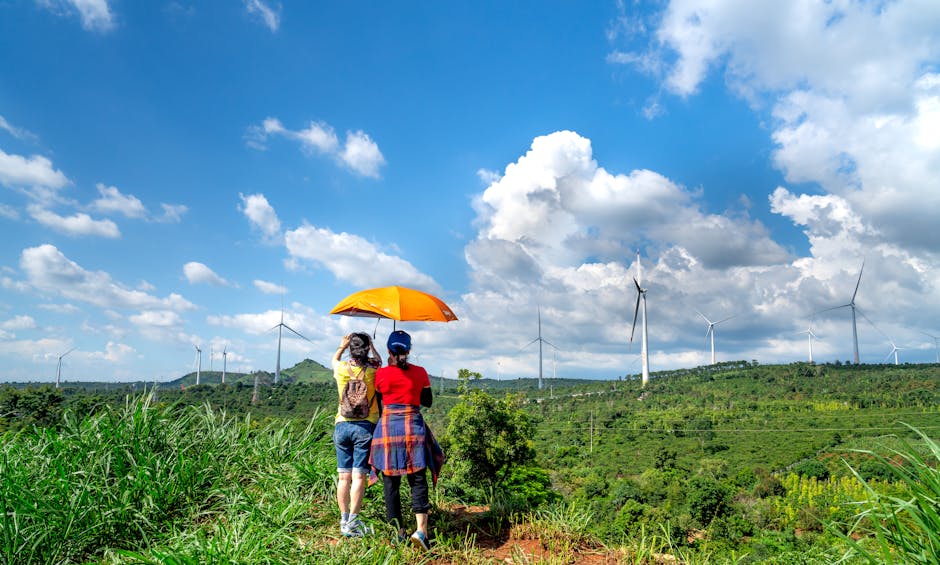Tourism, a vibrant sector driving economic growth and cultural exchange, faces a crucial juncture. The very act of immersing ourselves in diverse landscapes and cultures necessitates a profound examination of its environmental footprint. A burgeoning consciousness of ecological fragility and societal well-being compels us to re-evaluate the practices underpinning this industry. A critical aspect of this re-evaluation centers on the manifold challenges associated with achieving truly sustainable tourism.
Environmental Concerns: A Double-Edged Sword
A paramount challenge lies in mitigating the environmental damage inherent in large-scale tourism. Increased numbers of visitors invariably translate to heightened pressure on natural resources like water and energy. Over-consumption and mismanagement of these resources, coupled with the sheer volume of waste generated, are detrimental to fragile ecosystems. Consider the impact of mass tourism on coral reefs, delicate ecosystems often situated in otherwise pristine waters. The sheer weight of boat traffic, the effects of discarded pollutants, and the increased demand on local resources all contribute to their degradation.
Beyond resource consumption, another key concern encompasses biodiversity loss. Development of tourist infrastructure frequently encroaches on habitats, disrupting ecosystems and threatening indigenous species. Increased human activity, often associated with tourism, can exacerbate existing pressures on wildlife, from habitat destruction to poaching driven by tourist demand. The balancing act between accommodating visitors and preserving natural heritage is, therefore, a critical challenge to address.
Another area of significant environmental concern centers around carbon emissions. The transportation networks inherent in tourism, from air travel to road transport, contribute significantly to global greenhouse gas emissions. The carbon footprint of accommodation facilities, including energy consumption and waste generation, further exacerbates the problem. Finding ways to reduce these emissions through more efficient modes of transport, energy-efficient buildings, and waste management solutions is an urgent priority for the future of sustainable tourism.
Social and Economic Considerations: Interconnected Challenges
The pursuit of sustainability in tourism is not solely an environmental imperative; it’s deeply intertwined with social and economic considerations. Fair labor practices are essential. Often, tourism industries rely on low-wage, exploitative labor practices. Securing fair wages, safe working conditions, and opportunities for skill development for local communities is paramount.
Equally critical is the preservation of cultural heritage. Authentic experiences should not be commodified or exploited for purely commercial gain. Respecting local traditions, preserving cultural sites, and ensuring that tourism benefits the local population equitably is essential. Authenticity and respect for cultural nuances are critical factors that need to be addressed.
A nuanced consideration of economic models is also vital. Tourism-based income needs to be distributed fairly and equitably within the local community. Exploitative business models, often found in the tourism industry, must be replaced with those that promote local empowerment and economic participation. Community-based tourism initiatives, which prioritize local ownership and benefit sharing, are promising models for fostering both economic and social sustainability.
Furthermore, visitor behavior and awareness play a key role in shaping the sustainability outcomes of tourism. Encouraging visitors to adopt eco-conscious practices, such as minimizing their environmental impact, embracing local cultures, and supporting ethical businesses, is essential. This calls for sophisticated education and awareness campaigns targeted at both tourists and tourism businesses.
The Role of Governance and Policy: Setting the Stage for Success
Effective governance and appropriate policy frameworks are indispensable for fostering sustainable tourism practices. Governments must implement regulations that address environmental protection, labor standards, and cultural preservation. These policies should encourage environmentally responsible business practices and penalize unsustainable ones. International collaborations and the sharing of best practices are vital to creating a truly global framework for sustainable tourism.
Challenges also include incorporating sustainability into the regulatory frameworks surrounding tourism development and construction. Incentivizing sustainable practices and penalizing unsustainable ones are crucial to driving change. Transparency and accountability are equally important for ensuring that stakeholders are adhering to ethical guidelines.
Moving Forward: A Call for Systemic Change
The path towards truly sustainable tourism is paved with complexities and challenges. Moving beyond superficial initiatives towards systemic change requires a multifaceted approach. Integration of sustainability considerations into all aspects of the tourism value chain, from planning and development to operations and marketing, is essential. Encouraging and supporting innovation in sustainable technologies and practices is a crucial element. Encouraging investment in research and development for innovative solutions that address the environmental, social, and economic dimensions of sustainability are crucial steps.
Ultimately, sustainable tourism requires a paradigm shift in thinking. It necessitates a holistic understanding of the interconnectedness of environmental, social, and economic factors. This shift necessitates collaboration between governments, businesses, communities, and tourists. By embracing the complexities of this challenge and working collaboratively, we can pave the way for a future where tourism thrives without compromising the well-being of our planet and its inhabitants. This endeavor is not merely about mitigating negative impacts; it’s about fostering a more just, equitable, and environmentally conscious way of experiencing the world.












